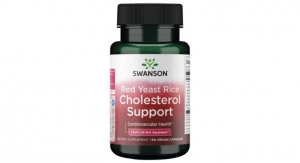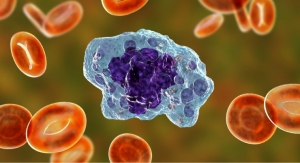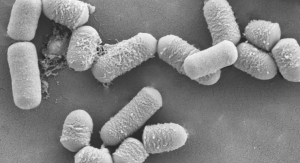03.14.23
Iminosugars, a class of bioactive carbohydrates isolated from cucumber, may play a role in ameliorating joint pain and improving function.
A cucumber extract marketed by IminoTech, Inc. as Q-actin was linked to significant improvements in self-reported and other measures of joint pain and function in a group of 91 participants with moderate osteoarthritis, in a study appearing in Current Rheumatology Reviews.
Q-actin is standardized to contain a concentration of iminosugar ido-BR1 standardized to over one percent.
“The results clearly show study participants were able to significantly improve their joint function and health by taking as little as 20 milligrams of Q-actin daily,” said Robert Nash, PhD, a phytochemistry researcher and leading expert on iminosugars who led the study. “The health benefits were evident from the early days of the study and at every evaluation point.”
Study Details
Subjects in the study were assigned to one of three groups. One group received a placebo, while the other two groups received a daily dose of Q-actin at 20 mg and 100 mg, respectively, for six months. Following a baseline evaluation, subjects were evaluated with the Western Ontario and McMaster Universities Osteoarthritis Index (WOMAC), Visual Analog Scale (VAS), and Lequesne’s Functional Index (LFI) at 30 and 60 days.
Both Q-actin groups had significant reductions in self-reported measures of pain and improvements in other joint function parameters at every point of the study, and by every evaluation method, in a dose-dependent manner.
Most notably, the 20 mg group saw a 32% improvement in WOMAC scores over six months, and the 100 gm group improved by 39%, compared to an improvement of 5% in the placebo group.
“It is remarkable that a daily serving of only 20 milligrams of Q-actin produced significant improvements in joint function, including the ability to complete daily activities such as using stairs, shopping and working at home,” said Shil Kothari, IminoTech chief executive officer. “Q-actin’s daily serving size is a small fraction of leading joint health dietary supplement ingredients. It opens the door to many new joint health product formats and applications.”
Earlier Evidence
This study follows a previous randomized, double-blind, placebo-controlled trial involving 122 adults who took either 20 mg of Q-actin daily, a placebo, or 2,700 mg of a glucosamine-chondroitin formula over a six-month period. Similarly, Q-actin improved WOMAC scores by 70% over six months.
Pre-clinical studies found that the extract reduced LPS-induced pro-inflammatory cytokine tumor necrosis factor alpha (TNFa) in both ex vivo human serum and THP-1 cells. TNFa has been linked to degenerative changes in joints when it is chronically elevated, suggesting a potential mechanism of action of the ingredient. IdoBR1 works in a dose-dependent manner to reduce inflammatory markers in the human body, including LPS-induced production of TNFa, IL-6, and the transcription factor NF-KB.
A cucumber extract marketed by IminoTech, Inc. as Q-actin was linked to significant improvements in self-reported and other measures of joint pain and function in a group of 91 participants with moderate osteoarthritis, in a study appearing in Current Rheumatology Reviews.
Q-actin is standardized to contain a concentration of iminosugar ido-BR1 standardized to over one percent.
“The results clearly show study participants were able to significantly improve their joint function and health by taking as little as 20 milligrams of Q-actin daily,” said Robert Nash, PhD, a phytochemistry researcher and leading expert on iminosugars who led the study. “The health benefits were evident from the early days of the study and at every evaluation point.”
Study Details
Subjects in the study were assigned to one of three groups. One group received a placebo, while the other two groups received a daily dose of Q-actin at 20 mg and 100 mg, respectively, for six months. Following a baseline evaluation, subjects were evaluated with the Western Ontario and McMaster Universities Osteoarthritis Index (WOMAC), Visual Analog Scale (VAS), and Lequesne’s Functional Index (LFI) at 30 and 60 days.
Both Q-actin groups had significant reductions in self-reported measures of pain and improvements in other joint function parameters at every point of the study, and by every evaluation method, in a dose-dependent manner.
Most notably, the 20 mg group saw a 32% improvement in WOMAC scores over six months, and the 100 gm group improved by 39%, compared to an improvement of 5% in the placebo group.
“It is remarkable that a daily serving of only 20 milligrams of Q-actin produced significant improvements in joint function, including the ability to complete daily activities such as using stairs, shopping and working at home,” said Shil Kothari, IminoTech chief executive officer. “Q-actin’s daily serving size is a small fraction of leading joint health dietary supplement ingredients. It opens the door to many new joint health product formats and applications.”
Earlier Evidence
This study follows a previous randomized, double-blind, placebo-controlled trial involving 122 adults who took either 20 mg of Q-actin daily, a placebo, or 2,700 mg of a glucosamine-chondroitin formula over a six-month period. Similarly, Q-actin improved WOMAC scores by 70% over six months.
Pre-clinical studies found that the extract reduced LPS-induced pro-inflammatory cytokine tumor necrosis factor alpha (TNFa) in both ex vivo human serum and THP-1 cells. TNFa has been linked to degenerative changes in joints when it is chronically elevated, suggesting a potential mechanism of action of the ingredient. IdoBR1 works in a dose-dependent manner to reduce inflammatory markers in the human body, including LPS-induced production of TNFa, IL-6, and the transcription factor NF-KB.




























